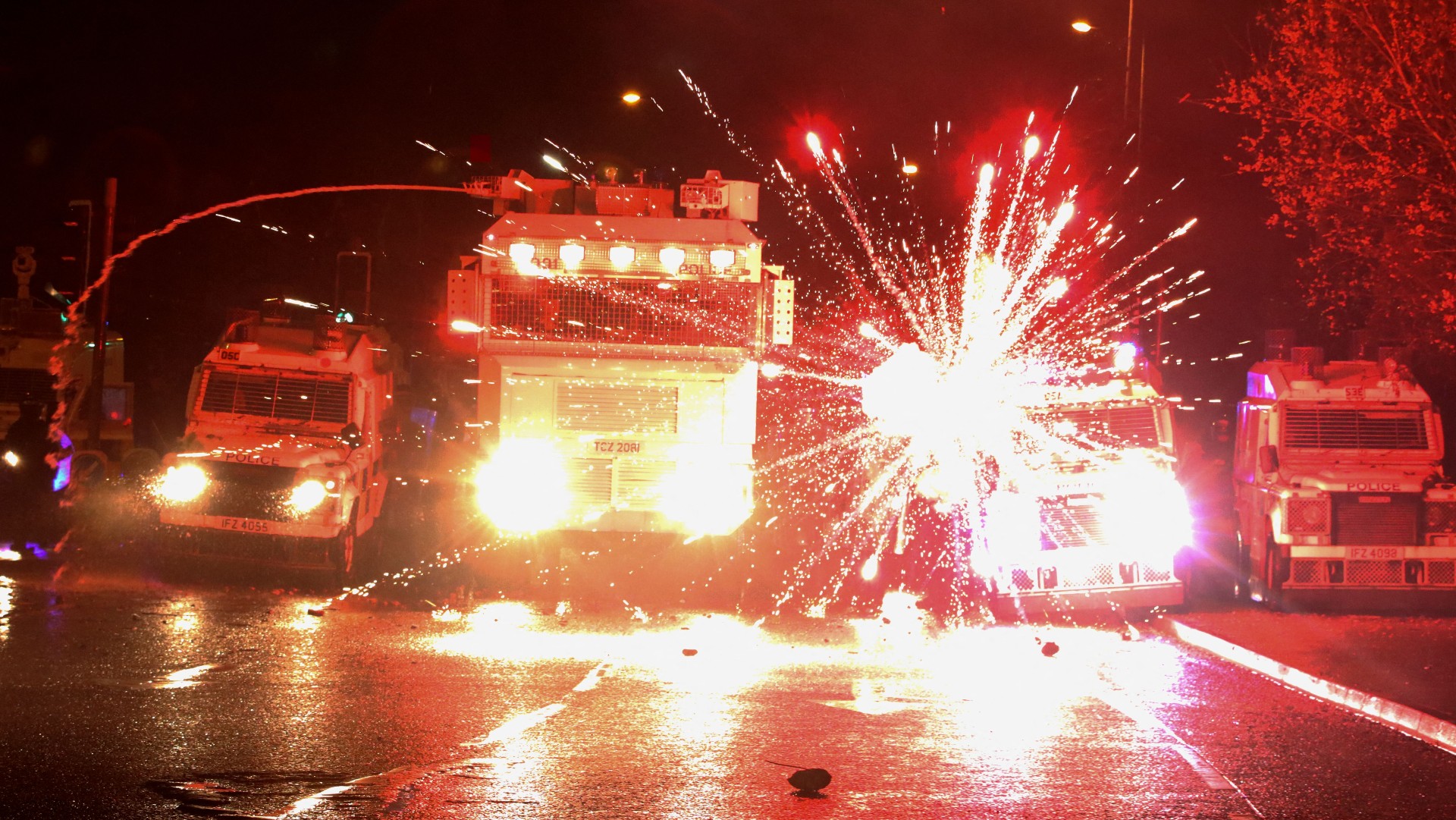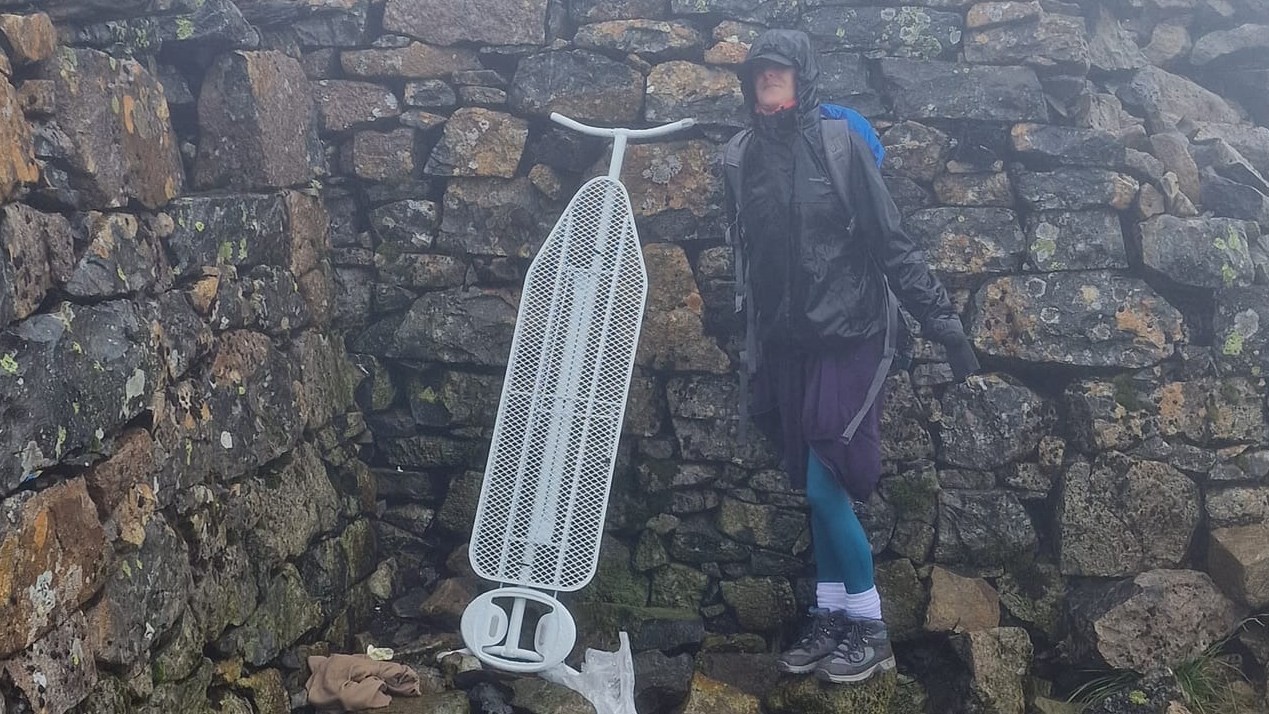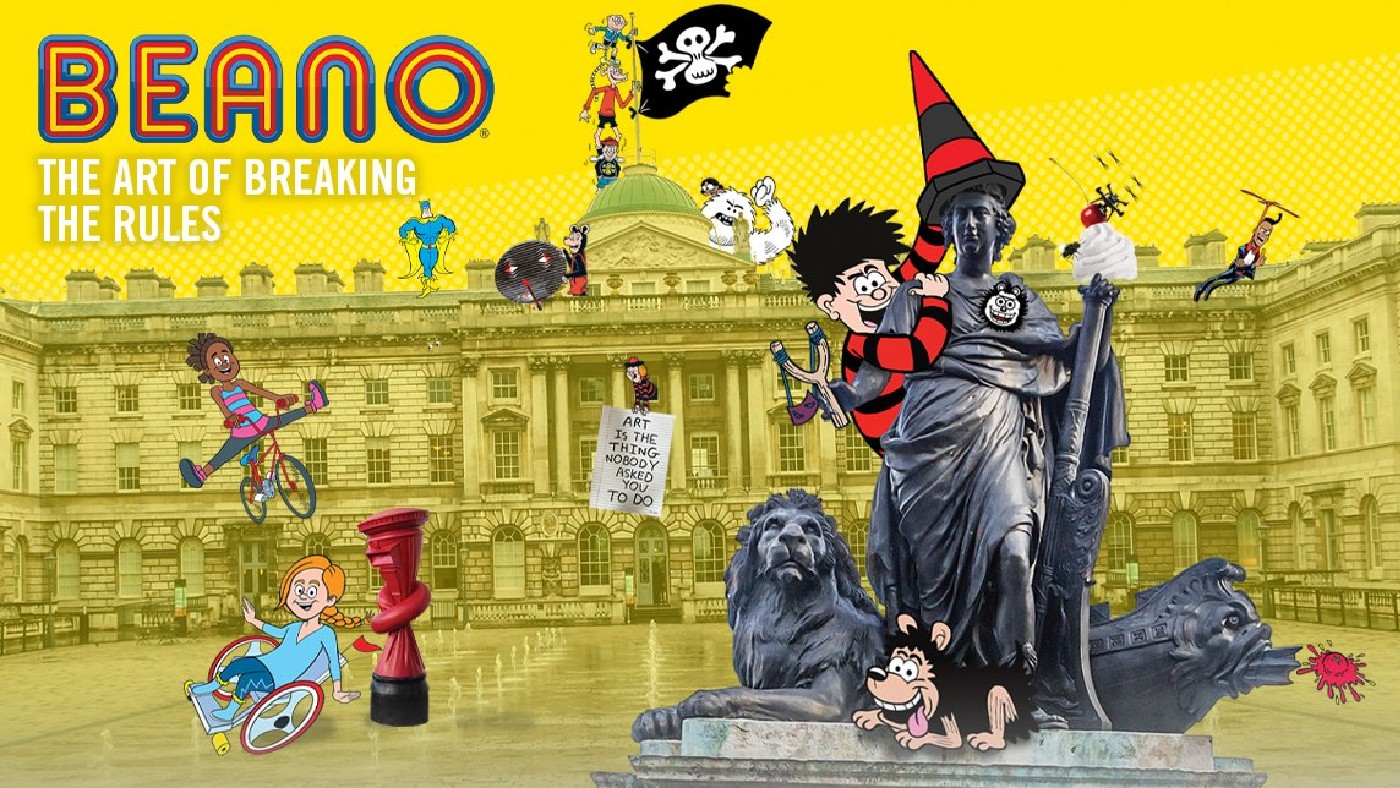‘The UK government’s union problems are mounting on all fronts’
Your digest of analysis and commentary from the British and international press

- 1. The future of the Union is on shaky ground as Covid-19 has made people more aware of the effects of devolution
- 2. Britain and the EU must be good neighbours
- 3. Has nothing been learned from George Floyd’s death?
- 4. It’s creepy that AI is teaching workers to be more human
- 5. Rebranding ‘wickets’ for The Hundred? Thanks, but I’m out...
A free daily email with the biggest news stories of the day – and the best features from TheWeek.com
You are now subscribed
Your newsletter sign-up was successful
1. The future of the Union is on shaky ground as Covid-19 has made people more aware of the effects of devolution
Katy Balls on iNews
on staving off separatism
The unrest in Belfast “is a problem that’s not going away”, says Katy Balls in the i newspaper. “Instead, the UK Government’s Union problems are mounting on all fronts.” Just as there is no single cause behind the violence in Northern Ireland, there is “no single solution” and “unease is also building on other parts of the Union strategy”. In Scotland, Nicola Sturgeon “appears to be making a comeback”, which could lead to another push for independence, says Balls. “As the Union comes under even more pressure in the coming weeks and months, the UK Government will have no choice but to find a way to fight back against separatism. [Boris] Johnson is going to have a job on his hands simply keeping the Union together.”
The Week
Escape your echo chamber. Get the facts behind the news, plus analysis from multiple perspectives.

Sign up for The Week's Free Newsletters
From our morning news briefing to a weekly Good News Newsletter, get the best of The Week delivered directly to your inbox.
From our morning news briefing to a weekly Good News Newsletter, get the best of The Week delivered directly to your inbox.
2. Britain and the EU must be good neighbours
William Hague in The Times
on moving on
In his first column for The Times, William Hague writes that Britain and the EU need to “start offering concessions” after the trust between them broke down over Brexit. “The honest truth is that relations between London and Brussels are very poor,” he says. “There is a choice to be made here, on both sides of the Channel.” The former Tory leader asks if the two sides are going to “muddle along”, while “hoping no further global crisis hits us while we are busy mistrusting each other”, or acknowledge that we are “each other’s most important neighbours and it is entirely possible to create a better atmosphere for millions of people who will want to work, travel, invest and study abroad?”
A free daily email with the biggest news stories of the day – and the best features from TheWeek.com
3. Has nothing been learned from George Floyd’s death?
The Washington Post
on history repeating itself
The case of George Floyd “ostensibly prompted a national reckoning on racial inequities in policing”, says The Washington Post. But a “shocking video” of black army officer Caron Nazario being mistreated by police and the death of Daunte Wright in a suburb of Minneapolis has coincided with the trial of the officer charged with Floyd’s murder. “Has nothing been learned from that tragedy? Do police think they can act with impunity? Why are these things still happening?” the newspaper asks. In the case of Wright, where the police officer is said to have used her gun instead of a Taser by accident, The Washington Post asks if the use of force at all was a prudent decision. “Part of the way police have traditionally been trained is to think they have to win at any cost, but that cost is far too high.”
4. It’s creepy that AI is teaching workers to be more human
Sarah O’Connor in the Financial Times
on the need for empathy
“Empathy is one of those precious human qualities that we don’t think artificial intelligence will ever supplant,” says Sarah O’Connor in the Financial Times. “But in the call centre industry, a more complicated story is beginning to play out.” Some companies are using AI to “coach” staff in real time, sending an “empathy cue” if the customer’s words, tone or pitch suggest they are irritated or upset. “If the problem is that emotionally exhausted workers are giving a bad experience to customers, then a simpler solution would be to prevent them from getting so burnt out in the first place,” she says. In the pursuit of efficiency, call centres “have ground humanity out of their workers – the very quality they now want to get back”, says O’Connor. “But before reaching for AI, there is a low-tech alternative. If you want people to act like humans, try treating them that way.”
5. Rebranding ‘wickets’ for The Hundred? Thanks, but I’m out...
Simon Heffer in The Daily Telegraph
on cricketing nonsense
The Daily Telegraph’s Simon Heffer thinks the decision by the England and Wales Cricket Board to replace the term “wickets” with “outs” for the Hundred competition is “ridiculous”. This and “other such nonsense” will help ensure cricket lovers are “turned off the Hundred for good, and start to feel less attracted to cricket generally”, he warns. On one level, it may appear to be “only a minor matter of terminology, but it is in fact another severance of this new type of game from everything else”, says Heffer. “Before too long, the Hundred will become just another money-making activity that happens at cricket grounds to keep the infrastructure functioning, such as selling beer or hospitality boxes, or using cricket grounds to host rock concerts or car boot sales.”
-
 Why are election experts taking Trump’s midterm threats seriously?
Why are election experts taking Trump’s midterm threats seriously?IN THE SPOTLIGHT As the president muses about polling place deployments and a centralized electoral system aimed at one-party control, lawmakers are taking this administration at its word
-
 ‘Restaurateurs have become millionaires’
‘Restaurateurs have become millionaires’Instant Opinion Opinion, comment and editorials of the day
-
 Earth is rapidly approaching a ‘hothouse’ trajectory of warming
Earth is rapidly approaching a ‘hothouse’ trajectory of warmingThe explainer It may become impossible to fix
-
 NHS tells Scots to walk like penguins
NHS tells Scots to walk like penguinsTall Tales Walk like penguins in the snow, says NHS
-
 Woman solves 'rude neighbour' mystery
Woman solves 'rude neighbour' mysteryTall Tales And other stories from the stranger side of life
-
 'Extreme ironing' blamed for Ben Nevis board
'Extreme ironing' blamed for Ben Nevis boardTall Tales And other stories from the stranger side of life
-
 Screaming Beatles fans embarrassed George Harrison’s mother
Screaming Beatles fans embarrassed George Harrison’s motherfeature And other stories from the stranger side of life
-
 First crocodile virgin birth recorded
First crocodile virgin birth recordedfeature And other stories from the stranger side of life
-
 Beano comics sent to Australia
Beano comics sent to Australiafeature And other stories from the stranger side of life
-
 Joggers told to wear helmets amid bird terror
Joggers told to wear helmets amid bird terrorfeature And other stories from the stranger side of life
-
 Otter accused of killing relocated Loch Lomond beavers
Otter accused of killing relocated Loch Lomond beaversSpeed Read The dead beaver kits were moved from Tayside to RSPB Scotland reserve last month